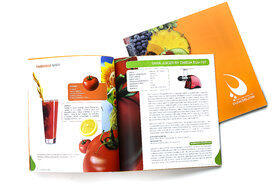This is a very important question.
- If you plan to prepare a large amount of juice at once, use a Centrifugal Juicer. You can process ingredients much faster than Low RPM juicers.
- Low RPM juicers are slower and they usually shouldn't be operated for more than 30 minutes continuously. This is enough time to produce 4 liters of tasty juice, which should be enough for the average family.
How often do you plan to use your juicer?
If you wan to use your juicer on a regular basis you should keep in mind the time it takes to disassemble and clean the juicer.
If you don't have the time for frequent cleaning and want to juice very often, find a juicer with fast & easy maintenance.
Using a vacuum container allows you to juice larger quantities less often, as the juice can be stored for up to 72 hours (if made in a slow juicer).
What’s the price of my health?
This question may sound strange, but it's valid. Cheap juicers often end up unused, just sitting on a shelf.
Why is that? It’s mainly due to poor juicing performance or difficulty cleaning. The money saved on a cheap juicer isn't really "saved" if it is never or rarely used.





